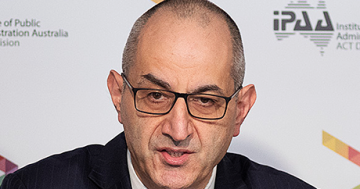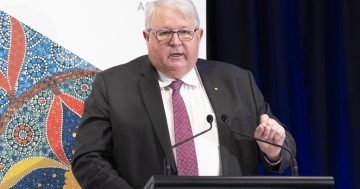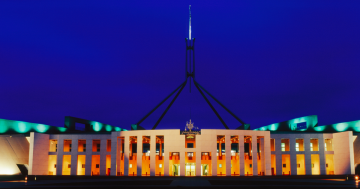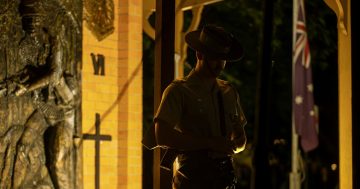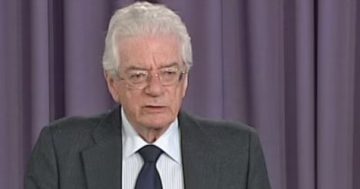
Paul Barratt has died aged 77. Photo: Australia21.
Former Defence Secretary Paul Barratt, who campaigned against the Iraq War, fought to review the war powers of government and improve political accountability died on Saturday aged 77.
Mr Barratt’s 30-year career in the APS included a decade as deputy secretary at the Department of Trade from 1974 to 1985.
After a four-year stint at the Business Council of Australia between 1992 and 1996, he returned to the APS at the request of then Deputy Prime Minister John Anderson to lead the Department of Primary Industry and Energy.
He transferred to Defence in 1998 but was dismissed by Defence Minister John Moore in August 1999. Mr Moore said he had “had lost trust and confidence” in Mr Barratt’s abilities to perform his duties.
His sacking from Defence became an important test of the independence of the APS. He fought his sacking in the courts and his ultimate loss indicated that senior public servants have few rights to fight wrongful dismissal.
My Public Sector
Mr Barratt became a passionate advocate for evidence-based approaches to policy development, and he campaigned to re-establish parliament’s primacy in decision making.
“The Australia of the future will need to restore science and other technical knowledge and skills to their proper place as the foundation of evidence-based public policy,” he wrote.
Of parliament, he said it needed to become a place of dignity and decorum.
“It must again become an institution in which serious matters are debated seriously by serious people and the views of non-government MPs are heard and respected. And Parliament must again become a place in which no deliberate untruth is told.
“Above all, if we do business in the future with more regard to empathy and compassion by taking mindful, rather than politically clever actions, we will all be better off.
“Achieving this crucial shift will require us deliberately to develop the mental training processes necessary to improve the social and emotional acumen to ‘see’ and take actions to alleviate the distress happening around us now, and to create a preferred future.”
Mr Barratt was also instrumental in establishing Australians for War Power Reform (AWPR) in 2012 to ensure that decisions for Australian troops to go to war, barring emergencies, are made only after full debate and vote by Federal Parliament. A driver of the campaign was the decision to commit troops to the Iraq War, which he vehemently opposed.
Mr Barratt was also a founder of Australia21, a think tank addressing ‘wicked problems’ such as drug law reform.
He stepped down as chair after a decade in the role in April this year due to illness. He was replaced by long-time drug-law reform advocate Dr Alex Wodak.
Paul Barratt AO died last night after being ill several months. Had co-founded then Chair @Australia21. Glittering career in public service. Gentleman. Highly intelligent. Much loved. Thoroughly decent. Farewell Paul. RIP
— Alex Wodak (@AlexWodak) October 3, 2021
Australia21 released a statement acknowledging the contribution over many decades of Mr Barratt to Australian public life.
“At Australia21 we were all very aware of his generosity and commitment to making the world a better place. His contribution to public life covered many fields and his leadership of Australia21 was characterised by considerable intellect, broad knowledge of the arts and sciences and high-level executive experience in the public and private sectors, including as Executive Director, Business Council of Australia.
“Above all, he was a man of integrity and his commitment to ethical and fair public policy was always front and centre in his life.
“Paul held governments to a high standard, and he was particularly concerned at the declining level of standards within Parliaments. He also believed that Australia needed to design policies that Close the Gap between the lives, livelihoods and expectations of the Indigenous community and the rest of Australian society.”
Just before major surgery in April, Mr Barratt emailed his friends and colleagues, quoting Antarctic explorer Captain Lawrence Oates: “I am just going outside and it may be some time.”
Mr Barratt was made an Officer of the Order of Australia in 1999 for service to public administration, public policy development, business and international trade.
















